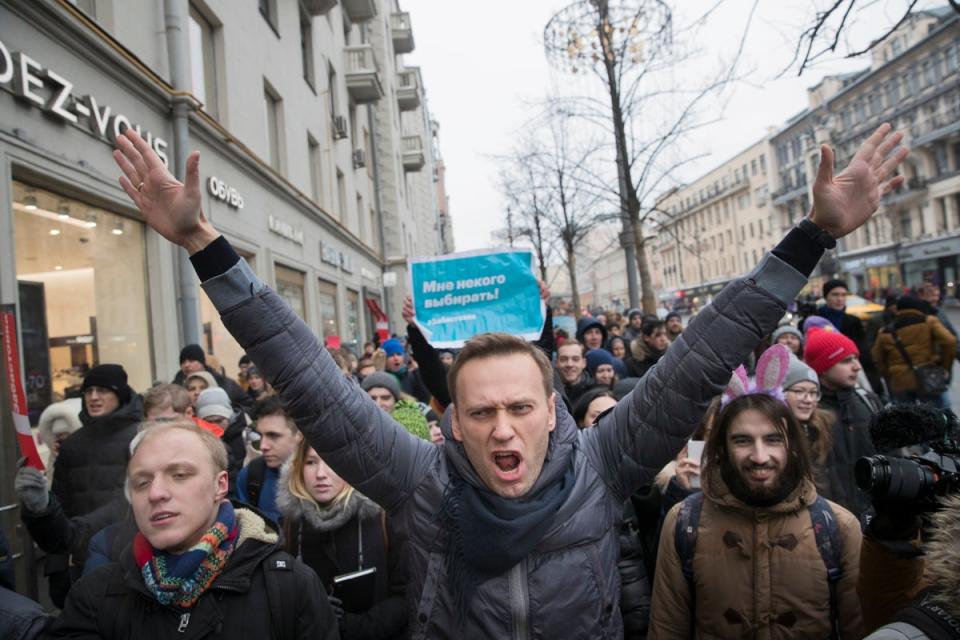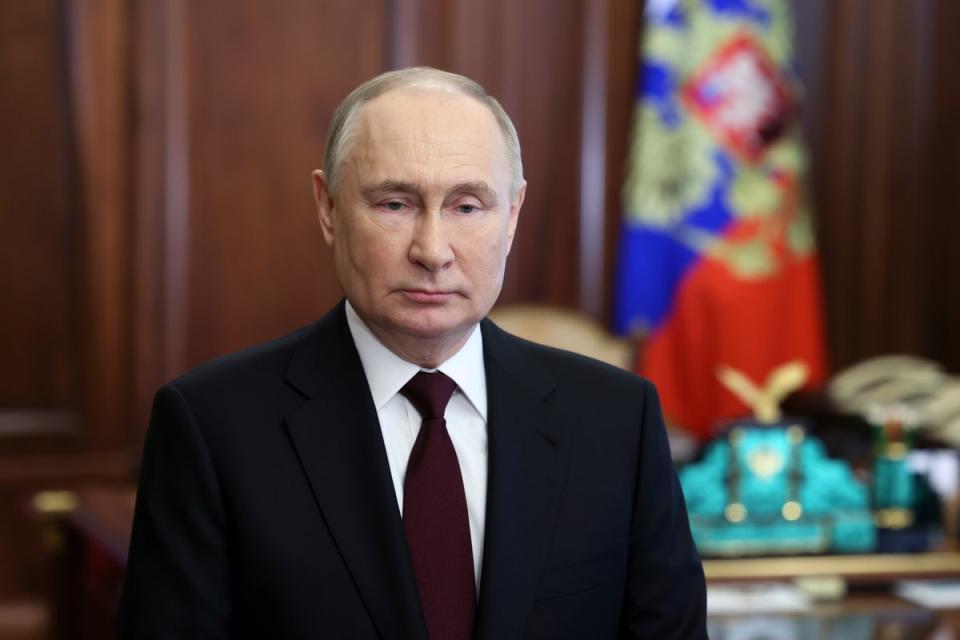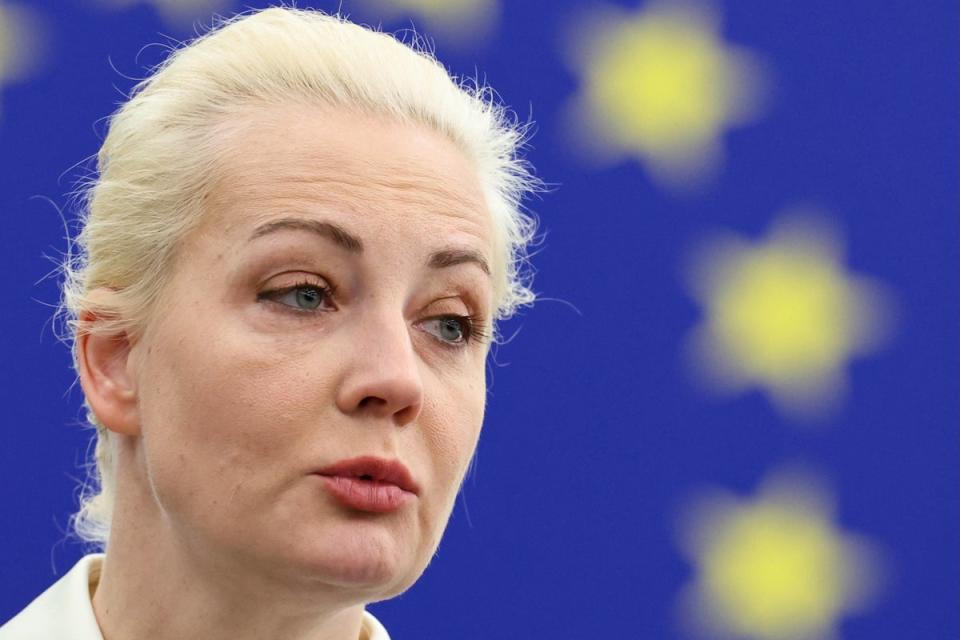Noon Against Putin: Alexei Navalny’s final plan to disrupt Russia’s sham elections
Russian citizens will spend this weekend casting their vote for their next president, even though the result has already been decided.
Vladimir Putin, already the longest-serving ruler of Russia since Joseph Stalin, will win a fifth and unconstitutional term after polls close on Sunday.
No amount of votes against him can prevent his victory, say the Russian dissident community, since the system is rigged and those that could challenge him have either been killed, imprisoned or exiled.

“It’s impossible to win against Putin’s regime through legitimate means,” says Evgenia Chirikova, who once unsuccessfully ran to be a local mayor in a Moscow suburb, with the help of Russian opposition figure Alexei Navalny. She is now in exile in Estonia, having had her life threatened by the authorities.
But the Russian dissident community has nevertheless convened a plan to disturb this rubber-stamping exercise.
Known as “Noon Against Putin”, Russian citizens frustrated with the leader’s rule are being called to head to the voting booths all at the same time: Midday, 17 March, the final day of the election.
“We want this dark time to end. We want a clear, normal future,” the campaign’s website says. “But we, citizens of our country, with our pain and our hope, are not noticeable either to the authorities or to each other.
“AT NOON on Sunday, March 17, the last day of voting, when we come to the polling stations, we will show others and see for ourselves that there are many of us . We can become a force that cannot be hidden behind drawn percentages.”
The plan, created by Russian opposition politician and former St. Petersburg lawmaker Maxim Reznik, has gathered traction since Navalny’s death.

“This can be a powerful demonstration of the mood of the country,” a post on Navalny’s Telegram channel said in early February. “This will be a nationwide protest against Putin that takes place near your home. It’s available to everyone, everywhere. Millions will be able to take part. And tens of millions will witness it.”
A fortnight after his death, his wife Yulia Navalnaya then endorsed the campaign as well. It has become what Russian independent media outlet Novaya Gazeta called “Navalny’s political testament”.
“I want to do what [Alexei] thought was right, and I urge everyone to come to his memory," Ms Navalnaya said in a video at the start of this month. “This will be your personal contribution to the common cause. There are probably many people close to you who are against Putin and against the war.”
It has since been backed by a host of prominent anti-Putin figures, including Mikhail Khodorkovsky, formerly Russia’s richest oligarch, and Gary Kasparov, the chess grandmaster turned opposition figure. Their Anti-War Committee, made up of dozens of exiled figureheads of the dissident community, have also backed the plan.

Nearly 20,000 Russians have been arrested for opposing Putin’s war in Ukraine since he ordered the full-scale invasion on 24 February 2022. Hundreds were detained for merely laying flowers in memory of Mr Navalny last month.
But the plan for “Noon Against Putin” is to stay well within the law - participants are being asked to vote, or not vote, however they please, so long as it is not for Putin - in the hope of circumventing the very real threat of arrest.
Ultimately, the plan is one intended to show at least a shade of the true nature of Russian dissidence, in a country where the stakes for opposing the Kremlin are the highest they’ve been since Stalin’s Gulags.
“The main thing we can do at noon is to show that there are many of us!” the campaign website says. “The queues that will line up all over the country will show how much discontent has accumulated in the country, how many people want a normal, stable future, they want a better life.”

 Yahoo News
Yahoo News 
